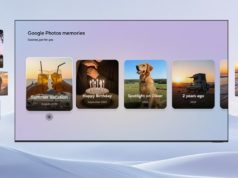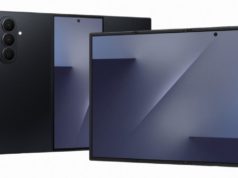With Google seeing an uptick in mobile searches — more Google searches take place on mobile devices than on computers in 10 countries, including the U.S. and Japan — it’s no surprise that the search engine giant would shift its AdWords focus to align with the market trends. In fact, Google sees a tremendous opportunity for marketers to reach people through new touchpoints on the path to purchase.
With that in mind, Jack Dischler, Vice President of Product Management at AdWords, announced AdWords innovations to a livestream audience of 20,000 customers that keep mobile top of mind. His speech focused on ad experiences that win the moment, automation that captures moments at scale, and measuring every moment that matters.
“Consumers, particularly on mobile devices, now have higher expectations than ever before — they want everything right, and they want everything right away,” said Dischler. “This requires that marketers answer their needs in the moment, whenever and wherever they are. Our investments in mobile are driven by consumers’ expectations for immediacy and relevance in the moment.”
Google’s AdWord Innovations
Google has created three new ad experiences for some of the hottest industries: automotive, hotels and mortgages. Google reports millions of people search for hotels every day and it has designed a mobile experience that could drive more revenues to hotelier’s bottom lines.
“When people search for hotels, they’re looking for information like rates, availability, locations, user reviews, editorial descriptions, Google Street View, and high resolution photos,” Dischler said. “Today, we announced that Hotel Ads will start to show globally for hotel partners around the world, one click away from Google.com. Hotel Ads show current prices from a variety of sources and when a traveler is ready, they can select ‘Book’ to complete their reservation on the partners’ sites.”
Dischler also explained the new automation features in AdWords, such as a new reporting dashboard for automated bidding that offers more transparency and control, as well as simulation tools that show the tradeoff between volume and cost at different cost-per-action targets. Google also beefed up recommended category targets based on a Web site’s content.
Finally, Dischler focused on campaign measurement. Google introduced data-driven attribution that uses an advertiser’s conversion data to calculate the actual contribution of each keyword across the conversion path. Google also rolled out new innovations around cross-device conversions integrated with automated billing and new tools to help marketers measure the incremental impact of Google ads.
The Number One Screen
We caught up with Greg Sterling, Vice President of Strategy and Insight at the Mobile Search Association, to get his thoughts on AdWords changes. He told us mobile is now the number one screen.
“As with its mobile-friendly algorithm update, Google is trying to encourage marketers to be both more thoughtful and more aggressive with mobile adoption and marketing,” Sterling said.
AdWords new ad units and analytics capabilities are intended to help marketers and brands with better tools to create ads and understand their impact and effectiveness in a mobile context, he said.
“There’s still a pretty significant disconnect between mobile consumer behavior and marketers’ ability to capture mobile user interest and engagement,” Sterling said. “Google is trying to help close that gap.”






